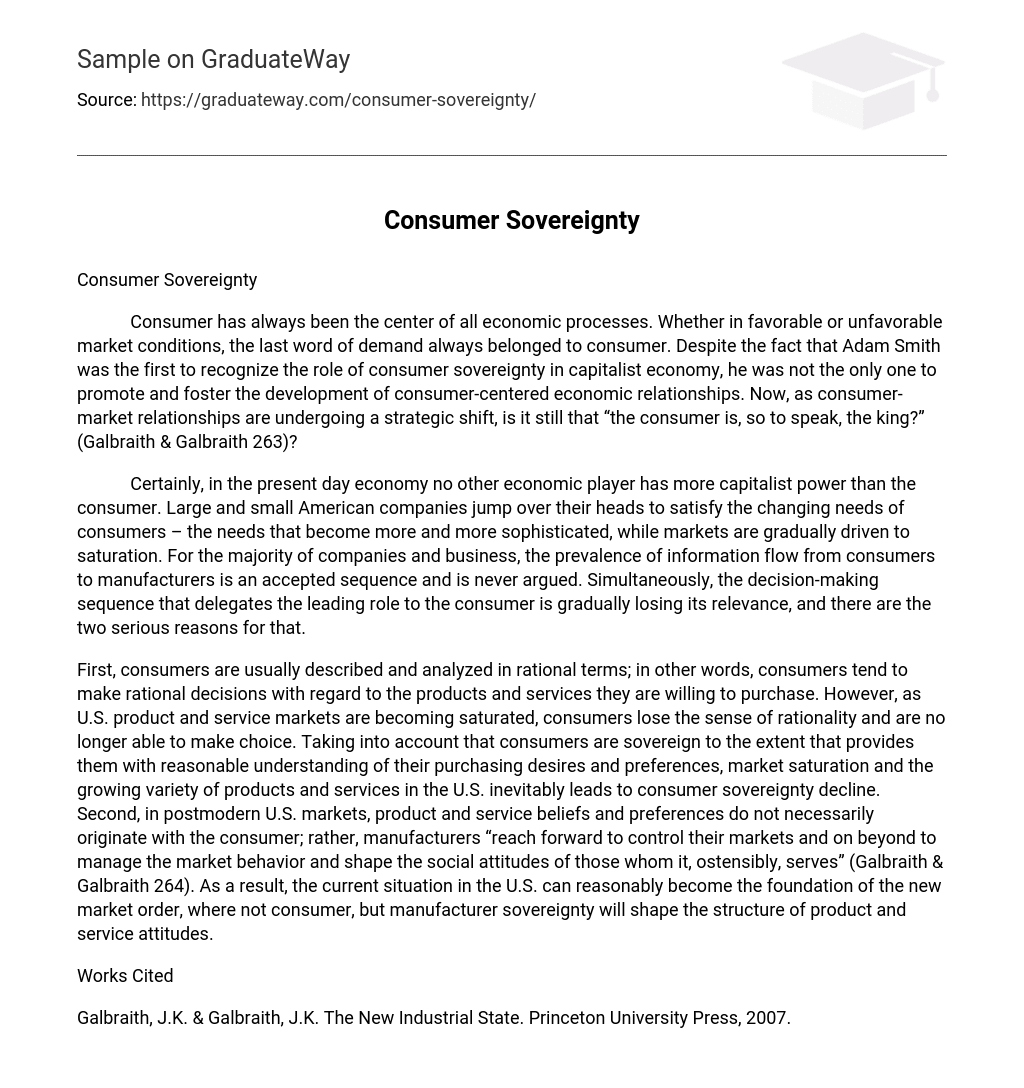Consumer has always been the center of all economic processes. Whether in favorable or unfavorable market conditions, the last word of demand always belonged to consumer. Despite the fact that Adam Smith was the first to recognize the role of consumer sovereignty in capitalist economy, he was not the only one to promote and foster the development of consumer-centered economic relationships. Now, as consumer-market relationships are undergoing a strategic shift, is it still that “the consumer is, so to speak, the king?” (Galbraith & Galbraith 263)?
Certainly, in the present day economy no other economic player has more capitalist power than the consumer. Large and small American companies jump over their heads to satisfy the changing needs of consumers – the needs that become more and more sophisticated, while markets are gradually driven to saturation. For the majority of companies and business, the prevalence of information flow from consumers to manufacturers is an accepted sequence and is never argued. Simultaneously, the decision-making sequence that delegates the leading role to the consumer is gradually losing its relevance, and there are the two serious reasons for that.
First, consumers are usually described and analyzed in rational terms; in other words, consumers tend to make rational decisions with regard to the products and services they are willing to purchase. However, as U.S. product and service markets are becoming saturated, consumers lose the sense of rationality and are no longer able to make choice. Taking into account that consumers are sovereign to the extent that provides them with reasonable understanding of their purchasing desires and preferences, market saturation and the growing variety of products and services in the U.S. inevitably leads to consumer sovereignty decline. Second, in postmodern U.S. markets, product and service beliefs and preferences do not necessarily originate with the consumer; rather, manufacturers “reach forward to control their markets and on beyond to manage the market behavior and shape the social attitudes of those whom it, ostensibly, serves” (Galbraith & Galbraith 264). As a result, the current situation in the U.S. can reasonably become the foundation of the new market order, where not consumer, but manufacturer sovereignty will shape the structure of product and service attitudes.
Works Cited
Galbraith, J.K. & Galbraith, J.K. The New Industrial State. Princeton University Press, 2007.





